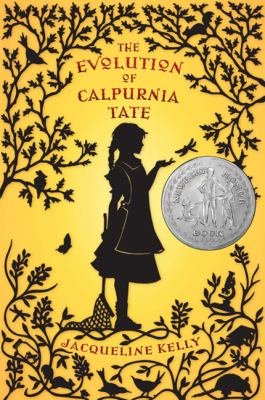One of my pet peeves about certain works of historical fiction is when a writer sets his or her novel in a specific time period, includes all the correct historical details with regards to food, clothing, and cultural traditions such as work habits and holiday celebrations, but writes the main character with a much-too-modern attitude. Especially with novels about young girls and women, the tendency of many contemporary authors is to give their protagonist a modern feminist mentality. But while many girls and women chafed at their traditional female roles throughout history, they didn’t think in quite the same way as “enlightened feminists” at the end of the twentieth and beginning of the twenty-first century.
In my opinion, many authors of historical fiction should also do a different kind of research – not only investigating what kinds of corsets and gowns women had to wear, what chores they had to perform, what little education they were given, but also researching what the women of those times actually had to say about these things in their letters and diaries. Then they should stretch their imagination farther in order to articulate a character’s dissatisfaction with traditional gender roles without adopting contemporary attitudes, expectations, and language.
I know I’m high up here on my soapbox, but the truth is that the main character of Jacqueline Kelly’s Newbery Honor Book The Evolution of Calpurnia Tate commits the atrocious sin of speaking and thinking in contemporary ways – and I loved this novel anyway. In other words, I’ve finally come across a novel that I’m willing to forgive for its historical inaccuracy because it’s so wonderful in so many ways.
Calpurnia Tate is the story of a young Texan girl living on a cotton plantation at the turn of the century who chafes at traditional female activities and duties. She longs to study insect and animal life. While I was initially interested in the fact that the protagonist is interested in science (which I feel is somewhat unusual at the time of it’s publishing at least), this element of the story turned out to be only one of many reasons to love Kelly’s novel.
First of all, Calpurnia Tate is quite funny. I don’t tend to laugh too much when I am reading historical fiction, except when it comes to Lucy Maud Montgomery’s Anne of Green Gables and its sequels. I’m trying to recall any other historical novels that have made me chuckle as much as Kelly’s novel and I’m coming up blank. Calpurnia and her grandfather are both intelligent, very quirky characters that do and say amusing things and find themselves in some entertaining situations. The novel was much lighter reading then I thought it would be from the summary, which pits inquisitive and intellectual Calpurnia against her mother and the world of traditional feminine domesticity.
But despite its humor, the novel does justice to the serious topic of a scientific-minded young woman who is expected to set aside her interest in biology and research in order to learn how to bake pies and knit stockings. As Calpurnia realizes that her chances of becoming a scientist are slim, her feelings of discontent, despair, and isolation are realistically portrayed (other than the contemporary language that the character uses) and struck me right to the heart. I may not be a scientist at heart, but most people can understand or at least sympathize with the pain of being forced into a role that makes you terribly unhappy. The character’s interest in science and exploration of the concepts in Charles Darwin’s The Origin of Species sets her at odds with the more traditionally-minded members of her community and no one understands poor Calpurnia – no one except her grandfather.
And it is Calpurnia’s relationship with her grandfather that is the final and shining reason that I loved this novel. Grandfather Tate is a gruff, distracted old man who hides away in his library and his lab; his other grandchildren find him quite intimidating. Yet when Grandfather discovers a budding scientist in his only granddaughter, the two develop a special relationship. They share many interests and activities, and they understand each other in a way that no one else seems to understand either of them. They go hunting for bug and plant specimens together, and he teaches her about all the scientific wonders of the world. He cultivates her interest in not only botany and insect life, but in all kinds of knowledge, giving her a copy of The Origin of the Species and access to his collection of Charles Dickens novels. When Calpurnia demonstrates clever business acumen though, his reaction is one of disappointment – it is obvious that he wants her to become a scientist. He teaches her the scientific method and includes her in his experimental attempts to distill a new type of liquor from pecans. The two discover a new type of plant, which they submit to the Smithsonian Institution to be cataloged and christened with the family name, since they are the plant’s discoverers.
While Calpurnia’s interest in science is what makes this novel unusual and interesting, it is her relationship with her grandfather that made it particularly poignant for me. When I first read this novel, I had recently lost not only my grandpa, but also my grandmother, both of whom were very special to me. Consequently, this novel hit on many of my emotions. I found myself chuckling – even laughing out loud sometimes – and insisting that I read a few sentences to my husband every once in a while. Then, minutes later, I found myself sniffling.
Clearly, because Kelly was able to entertain me in such a way, I have to forgive the novel’s lack of historically accurate speech. In truth, the attitudes and ideas that are communicated are not that far from what a young girl might have felt at the time – it is really only how those ideas are communicated that strike me as inaccurate. But in the overall picture, the particular language stopped mattering to me as I fell in love with this novel. I recommend The Evolution of Calpurnia Tate even for readers who don’t normally enjoy historical fiction.



This website was created with a lot of love, Coke Zero, and tacos by Kumquat Creative.